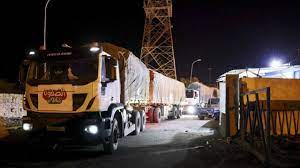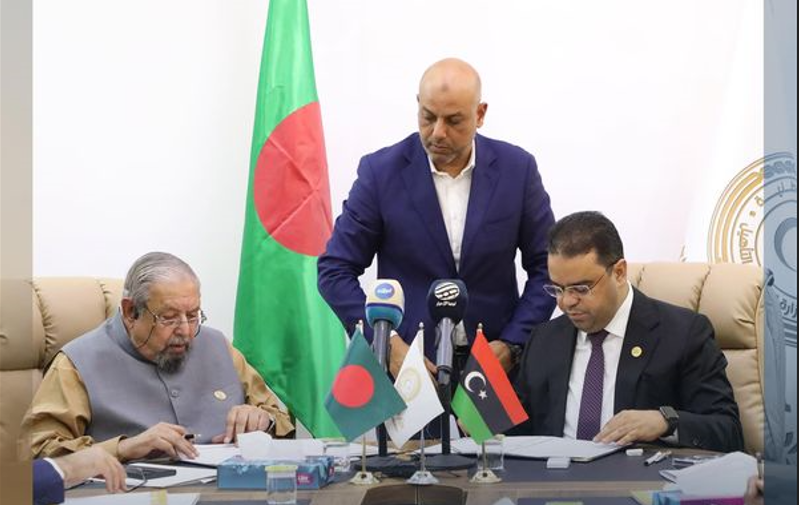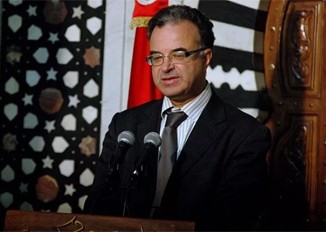The deteriorating social and economic situation in Tunisia has prompted the Libyan government of national unity, based in Tripoli, to send food assistance to its neighbor in a solidarity move.
Nearly a hundred of Libyan trucks carrying sugar, oil, flour and rice arrived this week in Tunisia which is suffering from shortages of basic goods, from coffee to petrol along with a political crisis following President Kais Saied’s dramatic power grab in July 2021.
More truckloads of food supplies will be sent to Tunisia in the few coming days. The food donation comes two months after Abdelhamid Dbeibah, Tripoli-based interim prime minister of the Government of national unity (GNU), visited Tunis.
According to press reports, the GNU plans to send 170 aid trucks in the coming days.
Last November, the GNU sent a shipment of petrol estimated at 30,000 tons to help the neighboring country overcome the fuel crisis after failing to pay for its import.
Despite the violent struggle for power and political crisis in Libya, its oil revenues make it relatively wealthy compared to its resource-poor neighbor.
The Russia-Ukraine war has dealt a severe blow to Tunisia’s faltering economy which was hard hit by coronavirus and had been struggling for years before the pandemic.
Increases in global food and energy prices sparked by the conflict pushed inflation up to record levels, adding to the burden on a population which has seen its living standards plummet over the past decade since Tunisia’s 2011 revolution against autocratic rule.
High prices for wheat and oil imports have piled pressure on the strained public finances of a heavily indebted government which subsidizes bread and fuel for its 12 million people.
Following the latest lowest ever electoral turnout (8.8 pc) recorded in the Tunisian parliamentary elections, the opposition parties called on President Saied to step down, saying he had lost his legitimacy as voters overwhelmingly boycotted the elections.
The country has plunged into political uncertainty after President Saied suspended parliament and introduced a new constitution, reducing the prominence of political parties. These moves have been described as a coup against democracy, prompting regional and international concerns over the country’s stability.



